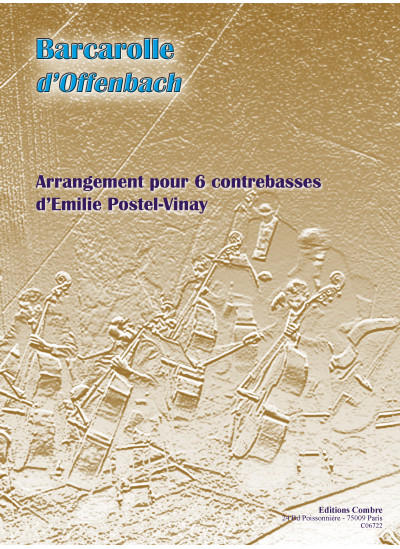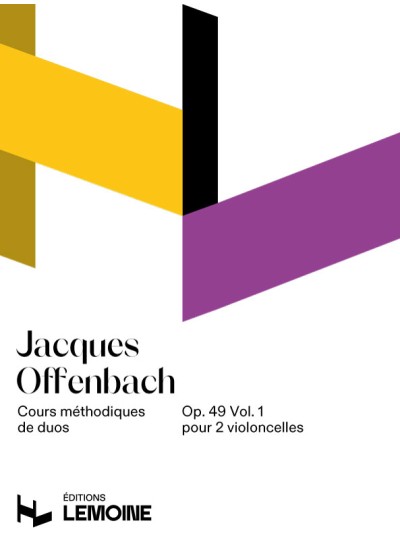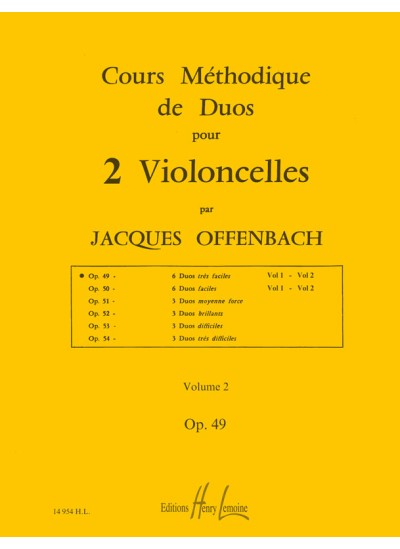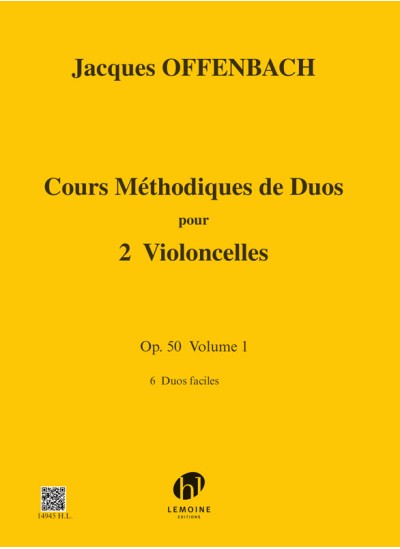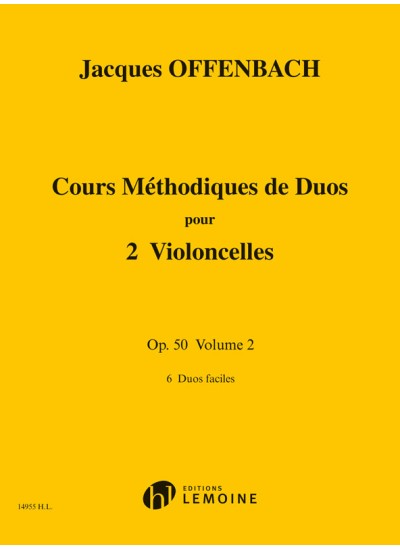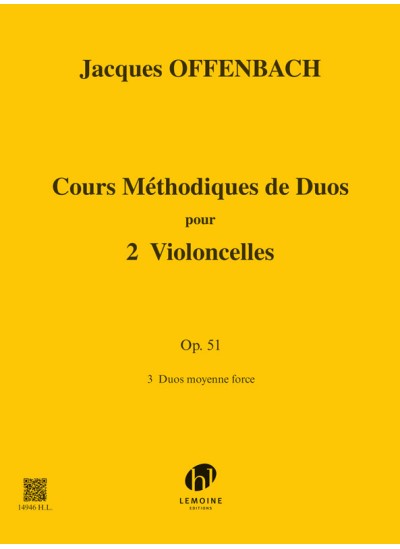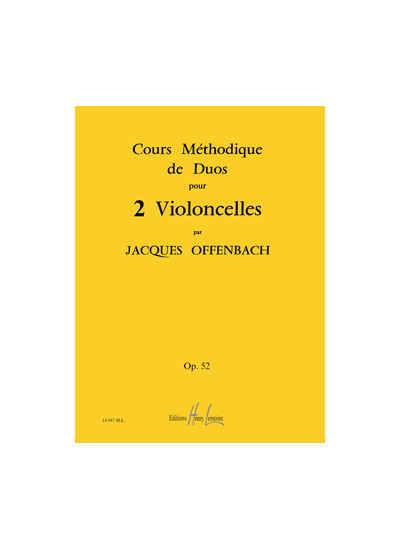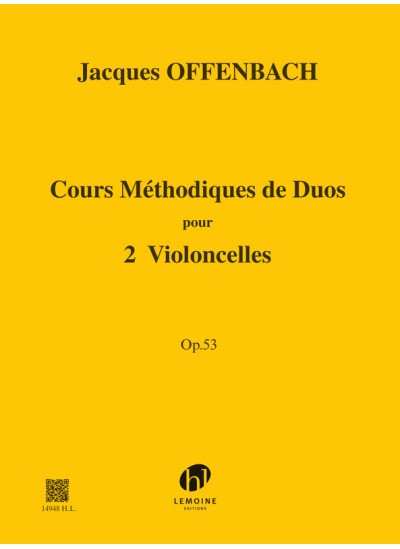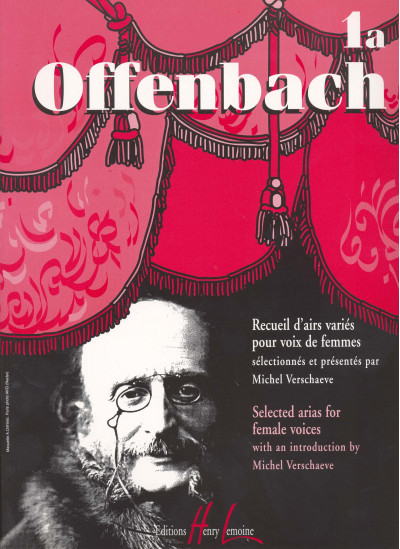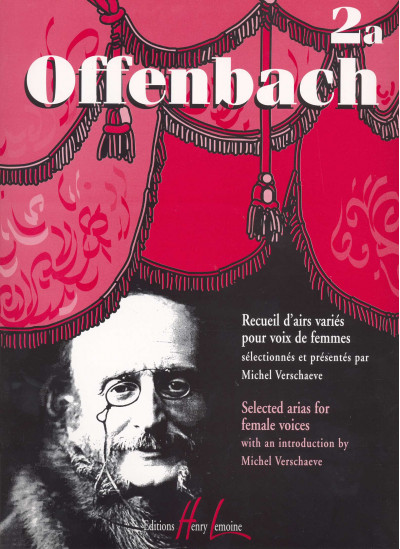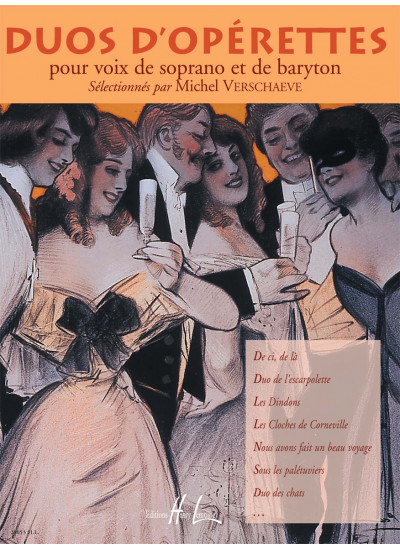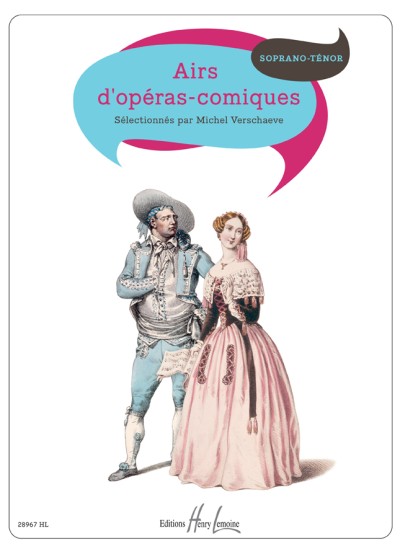
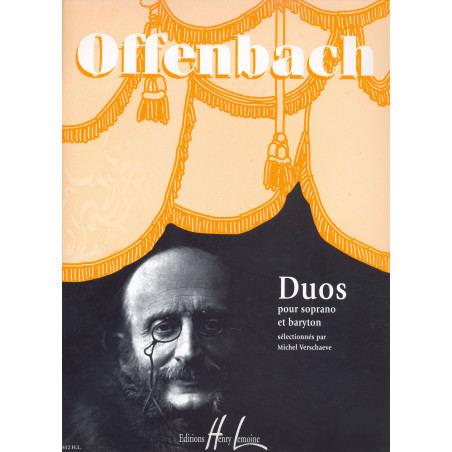

Offenbach's duets are fine examples of complicity, musicality and above ail, theatre.
It thus seems essential to offer singers (actors) an album that not only lets them rediscover, with pleasure, the most famous passages from operetta repertoire, but also lets them discover a number of far lesser known works such as Daphnis et Chloé, La Bonne d'Enfant or Les Bavards.
Offenbach was not satisfied with merely superposing two voices with his signature grace and eloquence, but prompts dialogue, nurtures the plot and in general composes a fully independent scene.
The unforgettable duet between the glover and the boot maker in La Vie Parisienne or the "celebrated" fly duet front l'Orphée aux Enfers, cannot fail to please. A situation's trite, weighty, grotesque, and even ridiculous character becomes transformed into emotion, complicity, tenderness and subtlety.
We recommend that performers be extremely attentive not only to the quality of their own work, but also, and above all, that they remain sensitive to their partners, to avoid any possible competition.
Instead of waiting for the next cue, anticipate, as a means of maintaining the theatrical rhythm. When the voices are together, always attempt to find the best possible balance. Mutual respect heightens the emotional impact, something, to which audiences are always receptive.
Ail of the duets found in this album, demand a rigor similar to that of musical comedy: discipline, professionalism and connivance together with great concentration, will leave nothing to chance and insure that Offenbach's genius will be best served.
The barcarole from the Contes d'Hoffmann has been fondly, and therefore legitimately, included. Though most of this album calls for a feminine voice allied with a masculine voice, this duet was written for soprano and mezzo (a transvestite role sometimes sung by a baritone).
Just as for the Duos d'Opérette (28053), the selection of pieces found in this album can only confirm the growing interest in a musical style "made in France" from both performers and audiences.
Michel Verschaeve



